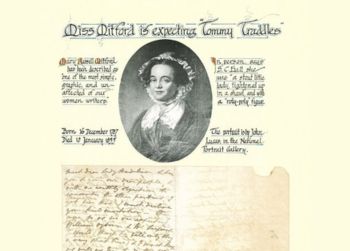A collection of 120 to 250 year old letters from literary figures including Mary Russell Mitford and Alfred, Lord Tennyson are now online at Wellington City Recollect.
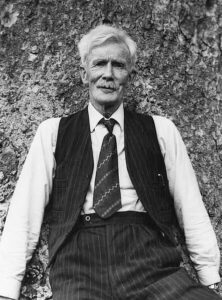
Many of us are familiar with name A. H. Reed, thanks to his efforts in the New Zealand publishing industry. Not so well known is that Alfred Reed was also an avid collector of rare books and unpublished manuscripts, which he purchased at auctions over many decades. In time he came to possess a sizeable collection of British ‘autograph letters’ written by 19th century writers and publishers. From the 1930s he began to allocate parts of his collection for donation to various institutions, including our own Wellington City Libraries.
The collection was presented to us as original letters mounted on poster card which he then embellished by hand in the style of an illuminated manuscript. Reed researched and wrote biographical and contextual notes to accompany the letters, while also adding colour and flourishes that make this selection incredibly unique.
The assortment of letters we have offer a small glimpse into British literary society in the 19th Century. Correspondence between friends, writers, publishers and booksellers discuss many of the same things we would today: difficulties with mail delivery, fair pay, employment, and of course the latest books.
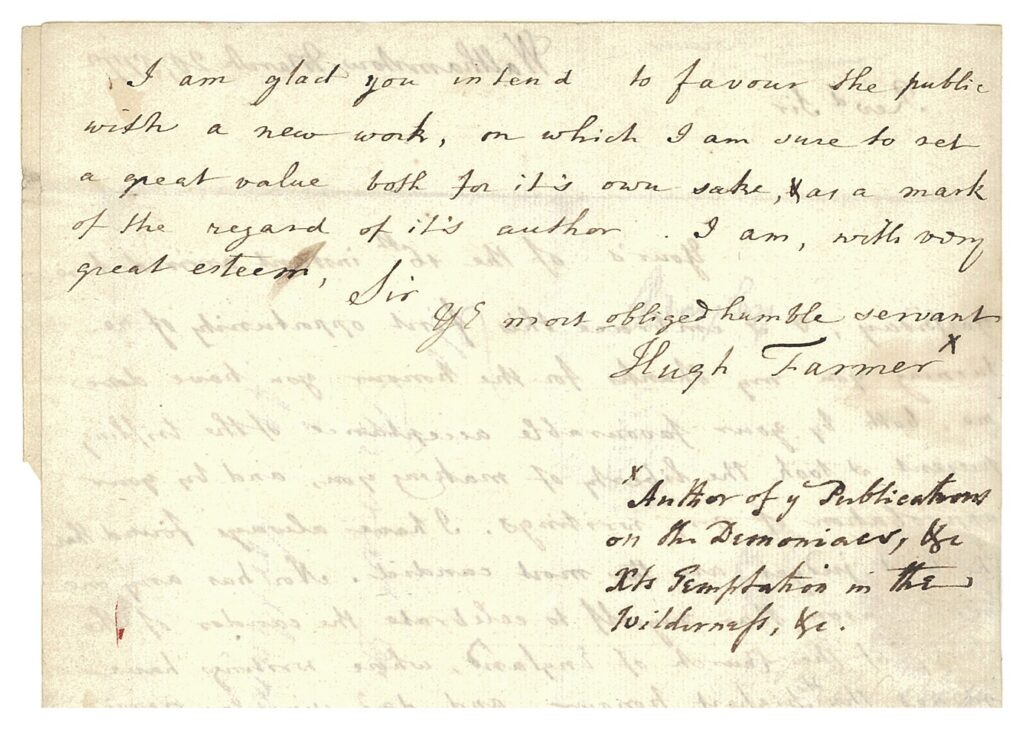
The oldest letter in the collection dates from 1772 and was written by the theologian Hugh Farmer, who appears to have been in regular correspondence with Rev. Thomas Percy at Northumberland House in London. Both men were also authors and were well respected in their fields, with Percy later being appointed Bishop of Dromore.
Such letters were written in the context of a booming bookselling business – publishing could be done on a larger scale than ever before, making books more available and affordable. The development of British laws in regard to compulsory schooling led to a huge increase in literacy rates, and by the mid-1800s reading for pleasure had become regular entertainment in many households. James Lackington (1746 – 1815) established the largest bookshop in the United Kingdom in Finsbury Square, naming it The Temple of the Muses and marketing it as ‘the cheapest bookstore in the world’. He is often credited with revolutionising the book trade by popularising cheap literature and believed that books should be available to everyone regardless of their economic background, social class or gender. In 1810 the store received an order by post for some 24 volumes, to be sent 180km away in Wells. This order is one of the manuscripts later collected by Reed and includes requests for history textbooks and a Latin dictionary. The customer, William Phelps, ordered various titles and dictionaries and eventually wrote his own set of volumes on the history of Somersetshire.
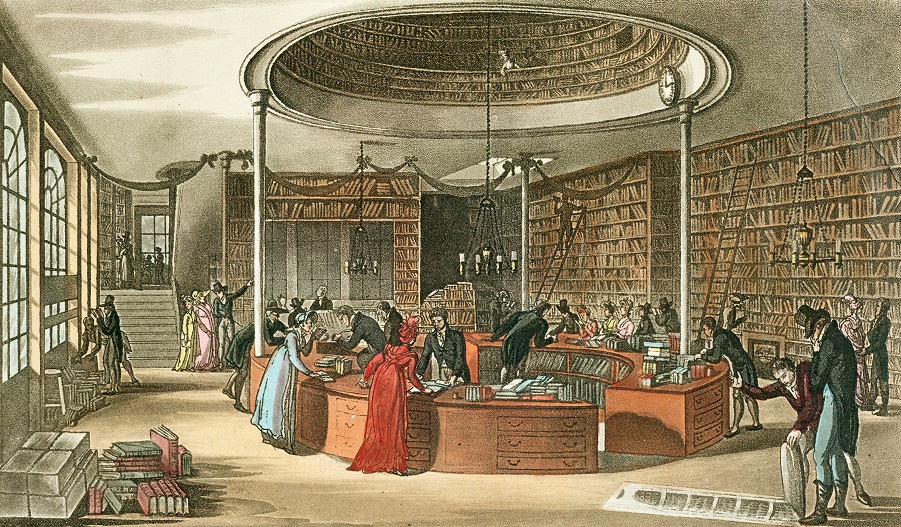
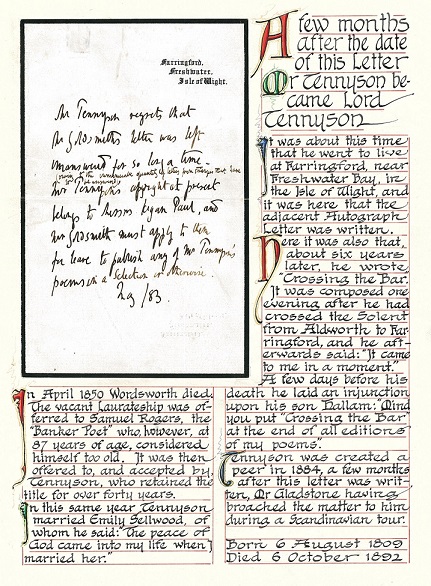
Naturally a booming publishing industry led to the necessity to mark one’s work as one’s own. Copyright laws gave authors and publishers protection, and any reprinting required permission from the designated rights holder. A note from Alfred, Lord Tennyson to a Mr Goldsmith in 1883 deals with this circumstance while apologising for the delay due to the “innumerable quantities of letters from strangers that have to be answered”. As it turns out, Tennyson did not hold the copyright and Mr Goldsmith was directed elsewhere.
Thanks to the preservation of this collection by librarians past, the manuscripts are in superb condition and we have been able to scan and upload these letters in their original format. The full collection is browsable on our heritage platform, Wellington City Recollect.


